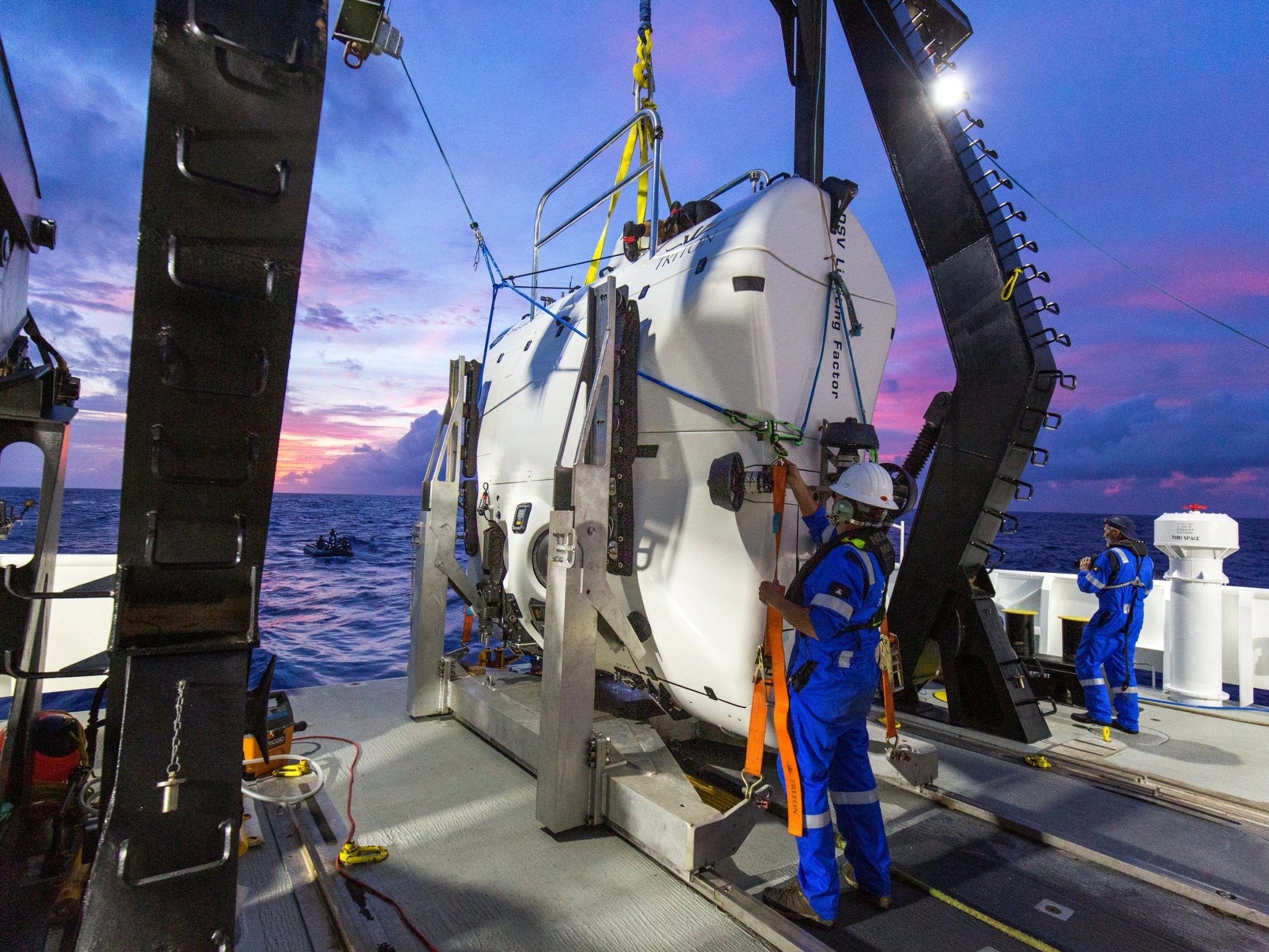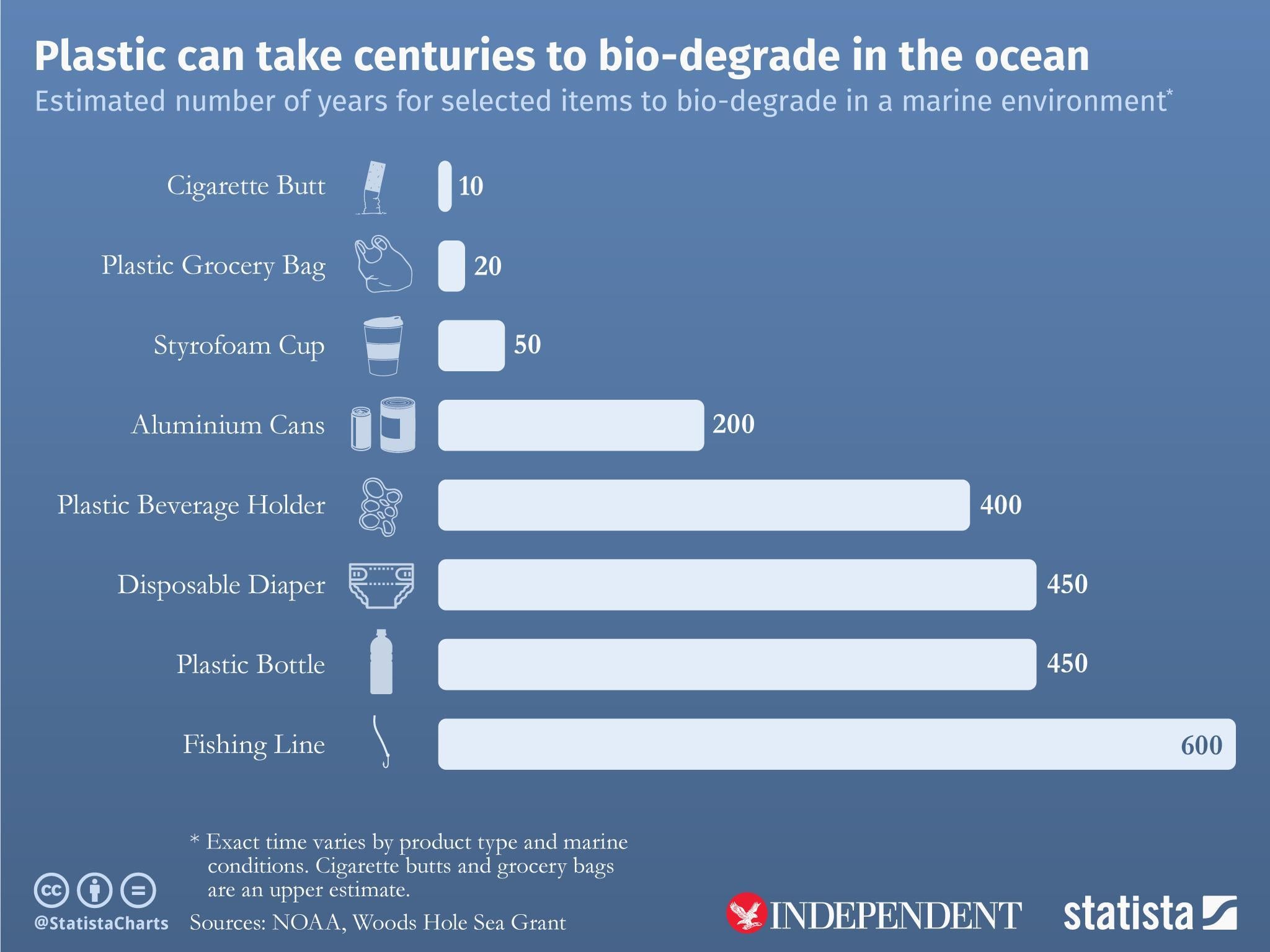Man makes deepest ocean dive ever - only to find plastic rubbish on the sea floor
Diver who descended almost seven miles laments sea being treated as 'big garbage collection pool'
Your support helps us to tell the story
From reproductive rights to climate change to Big Tech, The Independent is on the ground when the story is developing. Whether it's investigating the financials of Elon Musk's pro-Trump PAC or producing our latest documentary, 'The A Word', which shines a light on the American women fighting for reproductive rights, we know how important it is to parse out the facts from the messaging.
At such a critical moment in US history, we need reporters on the ground. Your donation allows us to keep sending journalists to speak to both sides of the story.
The Independent is trusted by Americans across the entire political spectrum. And unlike many other quality news outlets, we choose not to lock Americans out of our reporting and analysis with paywalls. We believe quality journalism should be available to everyone, paid for by those who can afford it.
Your support makes all the difference.An American explorer has completed the deepest ocean dive in history – and discovered plastic waste littering the sea floor 6.8 miles down.
Victor Vescovo’s submarine descended 35,853ft (10,928m) to the bottom of the Pacific Ocean’s Mariana Trench, the most remote place in the seas.
The retired naval officer found undiscovered species including shrimp-like anthropods and translucent “sea pigs” during four hours exploring the sea bed.
He also saw manmade rubbish – including a plastic bag, sweet wrappers and angular metal objects - in a place no human had ever been before.
"It was very disappointing to see obvious human contamination of the deepest point in the ocean," Mr Vescovo said.

Plastic waste has reached epidemic proportions in the world's oceans, with an estimated 100 million tonnes dumped in the sea, according to the United Nations.
Scientists have found large amounts of micro plastic in the guts of deep-dwelling ocean mammals such as whales.
Mr Vescovo hoped his unsettling discovery in the Mariana Trench would raise awareness about dumping waste in the oceans and pressure governments to strengthen or better enforce regulations.
"It's not a big garbage collection pool, even though it's treated as such," he said.
Mr Vescovo, a Dallas-based private equity investor, has made four dives in the Mariana Trench in his $48m (£37m) private submarine, DSV Limiting Factor, over the past three weeks. He has biological and rock samples during the descents.
His latest expedition went 52ft (16m) lower than the previous deepest descent in the trench in 1960.
It is the third time humans have dived to the trench’s deepest area, known as Challenger Deep. Canadian film director James Cameron was the last to visit in 2012 in his submarine, which reached a depth of 35,787ft (10,908m).
The first expedition to Challenger Deep was made by the US Navy, which reached a depth of 10,912m in 1960.
News of Mr Vescovo's discovery came as Sir David Attenborough warned an "unfolding catastrophe" that we "ignore at our peril" was unfolded in Earth's oceans.
The wildlife expert said plastic in the sea was a "global problem" that demanded a response on an international scale.

Writing in the i newspaper, Sir David said it was "high time" for the world's leaders to take action on plastic pollution.
"I have seen for myself the effects of plastic pollution on some of our planet's most precious species and natural places - an unfolding catastrophe that has been overlooked for too long," he added.

Scientists have previously found traces of fibres and plastics in the stomachs of creatures living in the Mariana Trench.
Whales have been known to choke to death on plastic bags, while toxic chemicals in human litter have also been shown to change the behaviour of marine creatures and leave them more vulnerable to attack.

Join our commenting forum
Join thought-provoking conversations, follow other Independent readers and see their replies
Comments